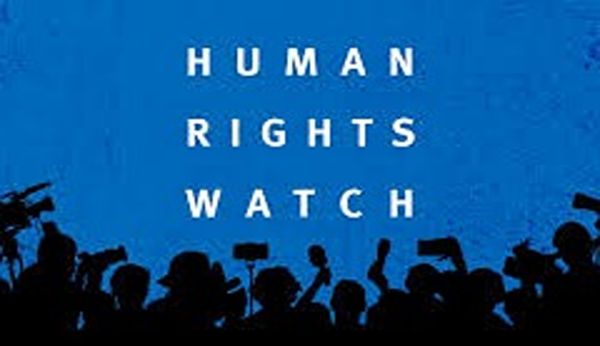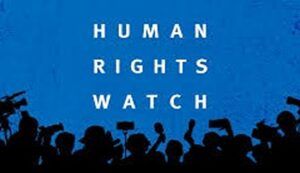
Dhaka: International human rights organization Human Rights Watch (HRW) has urged Bangladesh’s interim administration to make sure security forces respond to political violence in an unbiased manner and in accordance with the law.

In a statement on Wednesday, HRW cited a recent United Nations report that emphasized serious abuses of human rights committed by law enforcement during the turmoil that followed the overthrow of Prime Minister Sheikh Hasina’s government in August 2024, including mass arrests, extrajudicial killings, and torture.
According to HRW, “A United Nations report has found that law enforcement agencies, including the police, border guards, the Rapid Action Battalion (RAB), and intelligence agencies, had engaged in serious human rights violations to contain the protests that in August 2024 led to the ouster of the former repressive government of Prime Minister Sheikh Hasina.”
It went on to say, “Reform of the security sector has been promised by an interim administration headed by Nobel laureate Muhammad Yunus. However, as part of “Operation Devil Hunt,” it sent out security forces, including the military, to arrest about 2,000 individuals, most of whom were supporters of Hasina’s overthrown Awami League administration.
“Bangladesh is politically divided following decades of repression by the Awami League government, but the authorities should not repeat mistakes of the past and instead ensure impartial rule of law,” said Meenakshi Ganguly, deputy Asia director at HRW. The interim administration should prioritize immediate changes to the political and economic systems, as the UN has said.
The HRW said that the UN study indicated that up to 1,400 people were murdered between July 1 and August 15; the great majority of them were shot by Bangladesh’s security forces. The report stated that the breaches included extrajudicial murders, indiscriminate fire, mass arrests, and torture. According to the research, there is “a disturbing picture” where “accountability and justice are essential for national healing.”
The latest violence started when Sheikh Hasina, who is now in exile in India, said that she will speak to her followers online on February 7. She was obliged to resign as a result of the fervent protests by students and others after this revelation, which included attacks on her family’s or the party leaders’ homes. Her father, Sheikh Mujibur Rahman, who spearheaded the fight for independence from Pakistan, had his house destroyed as well. The house was now a museum dedicated to memorials.
Following an altercation between Awami League members and student demonstrators on February 8, Operation Devil Hunt was initiated. Serious injuries were inflicted by Awami League supporters who were trying to stop a group of students from assaulting a former minister’s house. The security operation will target organizations “linked to the fallen autocratic regime,” according to the interim government, which called them “devils.”
Hasina has been criticized by the interim administration for instigating violence, and it has requested that India extradite her so that she may stand justice. “Respecting the rule of law is what differentiates the new Bangladesh we are working together to build from the old Bangladesh under the fascist regime,” Yunus said in response to the appeal for calm.
According to Human Rights Watch, the administration should acknowledge that the right to peaceful assembly and protest—even for those who favor the old authoritarian regime—is a basic right that is safeguarded by international law. According to international human rights norms, law enforcement organizations must uphold and support that right and adopt peaceful methods wherever feasible before using force.
Maintaining order is a major responsibility of the Yunus administration. At the next UN Human Rights Council meeting in March, it needs to think about introducing a consensus resolution calling for technical support, more research, and oversight and reporting by UN-supported human rights specialists. The resolution should also recognize the interim government’s good human rights actions and the tyranny of the former regime.
“Bangladeshis are angry over the repression by the Hasina administration and they deserve justice and accountability, but it has to be in a rights-respecting manner,” Ganguly said. “All crimes, including mob violence, should be punished, but when authority figures characterize opponents as the ‘devil,’ it can fuel abuses by security forces that have never faced accountability.”